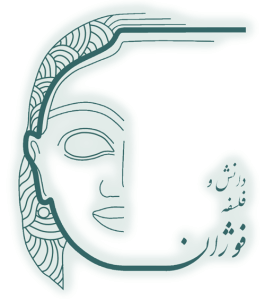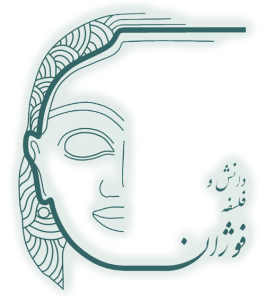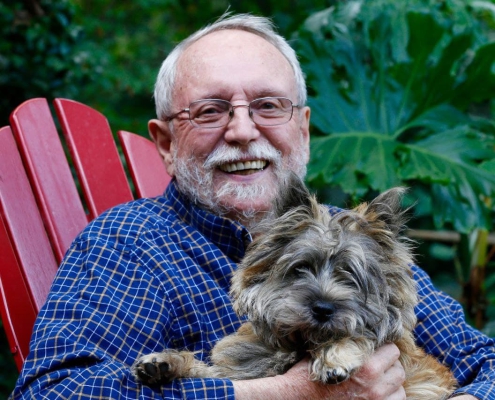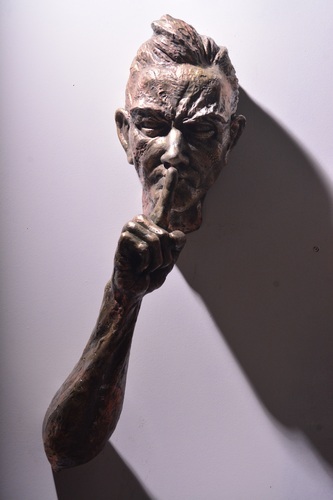Science and Religion 1
Michael Escott Ruse
- Florida State University
- https://philosophy.fsu.edu/people/faculty/michael-ruse
Research Interests
- Philosophy of Biology (Especially Darwinism)
- History and Philosophy of Science
- Science and Religion
I was born in 1940 and raised, very intensely, as a Quaker. Above all this filled me with a need to serve others (I am not a university teacher by chance) and an almost mystical sense of the Godhead – which, you will learn in the final paragraph of this article, explains much.
However, my faith faded around the age of twenty. I was no Saul-on-the-road-to-Damascus in reverse. I sometimes joke that having had one headmaster in this life, I’m damned (pun intended) if I’m going to have another in the next. But I would hate to think that one rather bullying man would have such a lifelong effect. Like a childhood passion for baked beans and stamp collecting, it simply faded away. I did take up girls, however, which somewhat compensated.
Nevertheless, it turned out that my non-existent God wasn’t going to let me go quite that easily!
I am a fanatic about the Victorians. I read and reread the novels of Charles Dickens. At the age of nineteen, I remember standing on Parliament Hill Fields and looking down in amazement at St Pancras Railway Station, the most glorious nineteenth-century building in London. So, it was natural that, as I developed into a historian and philosopher of science, Charles Darwin and his theory of evolution through natural selection would be my main focus as a scholar. And this meant engaging with the science and religion question, in spades!
So, where have I landed up after fifty years in the business?
Science and Religion don’t need to conflict
I do think that science and religion can conflict. Noah’s Flood cannot be literally true as a worldwide deluge some five thousand years ago. But, I take this to be quite unproblematic for the thinking Christian.
The story is true in the essential sense. I see it as a warning against simplistic solutions. People are misbehaving, so God wipes them out, except for Noah and his family. And what happens? When they get back to dry land, the old man gets blind drunk and his kid sees him naked and laughs. Sounds like quite a party!
The point is: Sin is still around and we learn that the theological picture of a God wiping the map clean and starting again is going to evolve.
However, overall, I agree with Stephen Jay Gould that science and religion are working in different dimensions. ‘Non-overlapping magisterial’ (NOMA) as Gould called them. Where I differ from Gould is in his thinking that science talks about things existing (ontology) whereas religion speaks only to morality (ethics).
Religion too makes ontological claims – God exists, for a start. But I add an extra line to the argument. Science is also deeply metaphorical – work, attraction, selection, selfish genes. Modern science is governed by what linguists call the “root metaphor” of a machine. Mechanism. The world is seen as a soulless, functioning entity, going on and on, governed by universal, unbreakable, mechanical laws.
The key point about metaphors (as pointed out by Thomas Kuhn who likened his paradigms to metaphors) is that they declare certain questions off-limits or irrelevant. “My love is a red, red rose”, means that she is beautiful and fresh – perhaps, jokingly, a bit prickly. But the metaphor tells us nothing about whether she is good at mathematics or a Protestant – both genuine ontological issues.
The same goes for the machine metaphor. It turns science into an instructional cookbook… ‘First take your hare’. It’s useful because it’s functional and doesn’t press into the metaphysical questions that undergird it. If you are asking about a river, you want to know where the water comes from, but ultimately you take the water molecules themselves as a given. If I’m working on drainage, I don’t need a lecture in quantum mechanics. Likewise, with consciousness, many scientists want to treat the phenomenon as the inevitable output of a complex machine. But, I’m with Leibniz. Machines don’t think. Sentience is something else.
Science can’t answer all questions
I take these as genuine questions. Why is there something rather than nothing? What is sentience, that a machine can indeed think? Science doesn’t answer them. It is open for others to try. That means religion. And it does offer answers. I believe Christianity offers serious answers to serious questions. This is what gets me into so much trouble with some of my atheist brethren.
The answers may be along these lines: There is something rather than nothing because a good God created things. There is sentience because we humans are made in the image of God. It doesn’t mean that these answers cannot be questioned, but they must be questioned on philosophical or theological grounds, not scientifically.
So why not God for me? Most importantly, I say that religious belief – and Christian religious belief in particular – relies first and foremost on revelation. Faith and not reason. In fact, this was a major point of contention when I discussed these issues with my Christian protagonist Prof John Lennox in our live audience edition of The Big Conversation.
Lennox was keen to present a case for the faith that was evidential and not just revelatory. But (if you’ll allow an atheist to have an opinion on it) I don’t think that’s the way Christians should approach faith.
Certainly, Christendom has a long history of elevating reason in the form of ‘natural theology’ – a strategy adopted during the Elizabethan Settlement of the 16th Century as a middle way between the authority of Rome and the sola scriptura of Geneva.
Reason vs revelation
But I think this approach is flawed. And it’s not just me – theologians such as Søren Kierkegaard in the 19th Century and Karl Barth in the 20th Century, both questioned the project of natural theology. Even Jesus himself seemed to have something to say about it:
“Then saith he to Thomas, ‘Reach hither thy finger, and behold my hands; and reach hither thy hand, and thrust it into my side: and be not faithless, but believing.
“And Thomas answered and said unto him, ‘My Lord and my God’. Jesus saith unto him, ‘Thomas, because thou hast seen me, thou hast believed: blessed are they that have not seen, and yet have believed.”(John 20: 27-29 KJV, emphasis mine)
All the great theologians have endorsed this at one level or another. Aquinas thought that reason has its uses. “For certain things that are true about God wholly surpass the capability of human reason, for instance, that God is three and one: while there are certain things to which even natural reason can attain, for instance, that God is, that God is one, and others like these.” Note however that reason is limited (we could be wrong), and in the end faith (where we cannot be wrong) is top dog.
Ultimately, without faith, you only get part of the story and Aquinas makes clear that faith trumps all – after all, how else could the ignorant or stupid or lazy get knowledge of God? John Paul II, in his Encyclical Fides et Ratio (1998) affirmed this position strongly. “The results of reasoning may in fact be true, but these results acquire their true meaning only if they are set within the larger horizon of faith: “All man’s steps are ordered by the Lord: how then can man understand his own ways?” (Prov 20:24).”
So reason alone won’t get us to believe in God. It requires revelation. And I have simply not had such a revelation. Listen to the late eminent British philosopher of religion John Hick. As a late teenager, he was resisting the call. Then it happened:
“An experience of this kind which I cannot forget, even though it happened forty-two years ago [1942], occurred —of all places— on the top deck of a bus in the middle of the city of Hull… As everyone will be very conscious who can themselves remember such a moment, all descriptions are inadequate. But it was as though the skies opened up and light poured down and filled me with a sense of overflowing joy, in response to immense transcendent goodness and love.”
But it has never happened to me.








